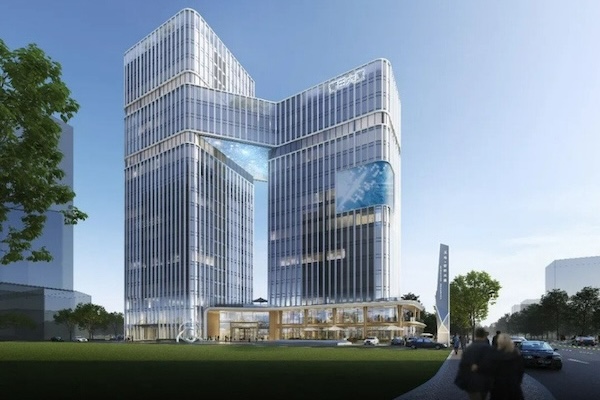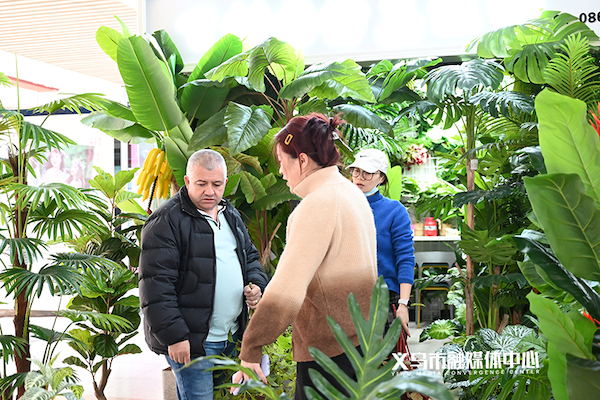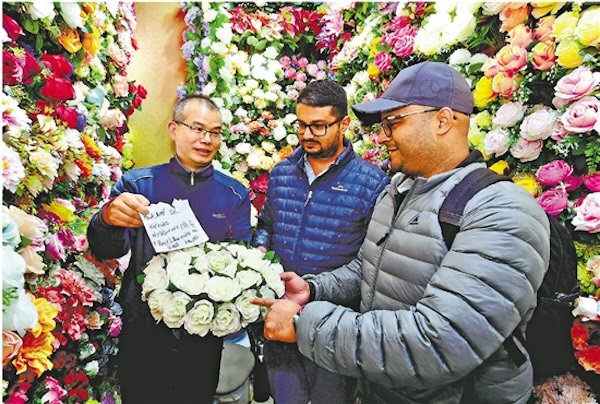Yiwu's overseas trade hub expected to open in Dubai in 2021
Media reporters from East China's Zhejiang province recently interviewed several Chinese merchants residing in the metropolis of Dubai in the United Arab Emirates to hear their thoughts on Dubai Yiwu China Commodities City, a local wholesale market expected to function by the end of this year.
The Dubai market, located in the city's Jebel Ali Free Zone (Jafza), is a joint venture between Zhejiang China Commodities City Group, a State-controlled firm that solely runs the Yiwu International Trade Market, and Dubai Ports World, a Dubai-based multinational logistics company that runs the free trade zone of Jafza.
Construction on the market started in the second half of 2019 and has been almost completed.
The market, which boasts an investment of 1.1 billion yuan ($169 million), will span 157,000 square meters in floor space. It will consist of 1,539 shops and 324 bonded warehouse rooms.
The market started to recruit commercial tenants in January and has so far received bookings for over 70 percent of its shops dedicated to selling hardware tools, bathroom accessories, kitchenware, bedding, garments, household electronics, furniture, lamps, groceries, as well as beauty products.
The Middle East and Africa are the two largest trading partners for Yiwu, with the combined annual trade volume surpassing 130 billion yuan, making up nearly half of the city's total foreign trade.
Dubai, a commercial hub of the Middle East, is the region's largest distribution center for "Made in Yiwu" products. Moreover, most of Yiwu's exports to Africa have to go through a transfer in Dubai in the first place.
As a result, the Dubai market became the first overseas marketplace in the global strategy of Zhejiang China Commodities City Group.
Founded in 1985, Jafza is one of the world's most popular investment destinations. Businesses settling in the 48-square-kilometer zone are fully exempted of value-added taxes, customs duties, corporate income taxes, and individual income taxes, as well as the need to have a local sponsor as required elsewhere in Dubai.
"I am ready to book 20 rooms in the new market. I hope it will open as scheduled and that my financial pressure would then be greatly relieved because of the tariff exemptions and bonded warehouse offered there," a Yiwu-born merchant surnamed Wu told reporters.
Wu was also impressed by the relatively low rent price charged in the new market.
Wu has been running hardware stores in Dubai for five years and his annual business turnover is roughly 40 million yuan.
Around 200,000 Chinese people currently live in Dubai. Roughly 3,000 of them are businesspeople for small commodities like Wu.
Wu and his Chinese colleagues kept updated with the progress of the new market and started to make consultations as soon as the new market launched its tenant enrollment initiative.
According to a manager at Zhejiang China Commodities City Group, Dubai Yiwu China Commodities City is expected to efficiently serve a huge consumer market of nearly one billion people, spanning the Middle East, North Africa, and East Africa. It is only a 15-minute drive away from Dubai Al Maktoum International Airport and the Port of Jebel Ali, both of which are among the largest of their kind in the Middle East.
In the future, Dubai Yiwu China Commodities City will be the distribution center for Yiwu's entire market in the Middle East and North Africa, said the manager.

 Yiwu and Qingtian: Global supermarket alliance spurs economic growth
Yiwu and Qingtian: Global supermarket alliance spurs economic growth Artificial flowers: Yiwu's evergreen business
Artificial flowers: Yiwu's evergreen business Yiwu Intl Trade Market reopens after Spring Festival holiday
Yiwu Intl Trade Market reopens after Spring Festival holiday